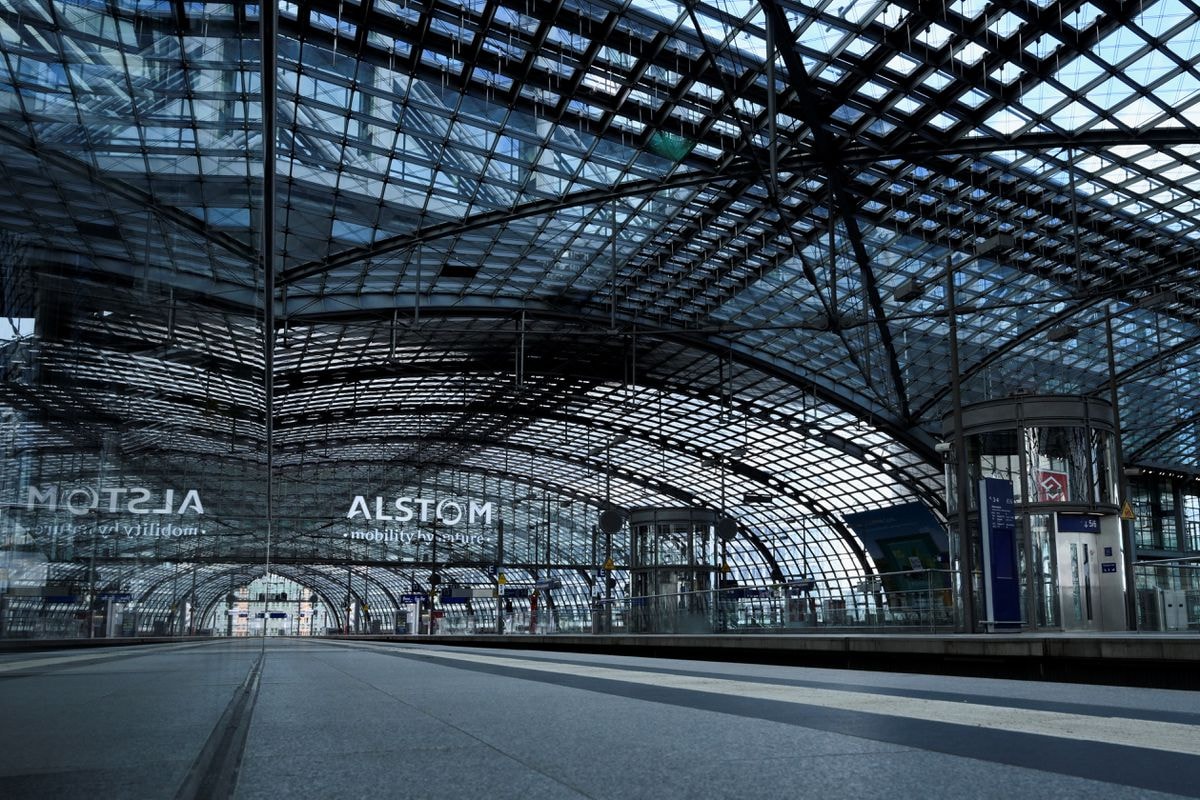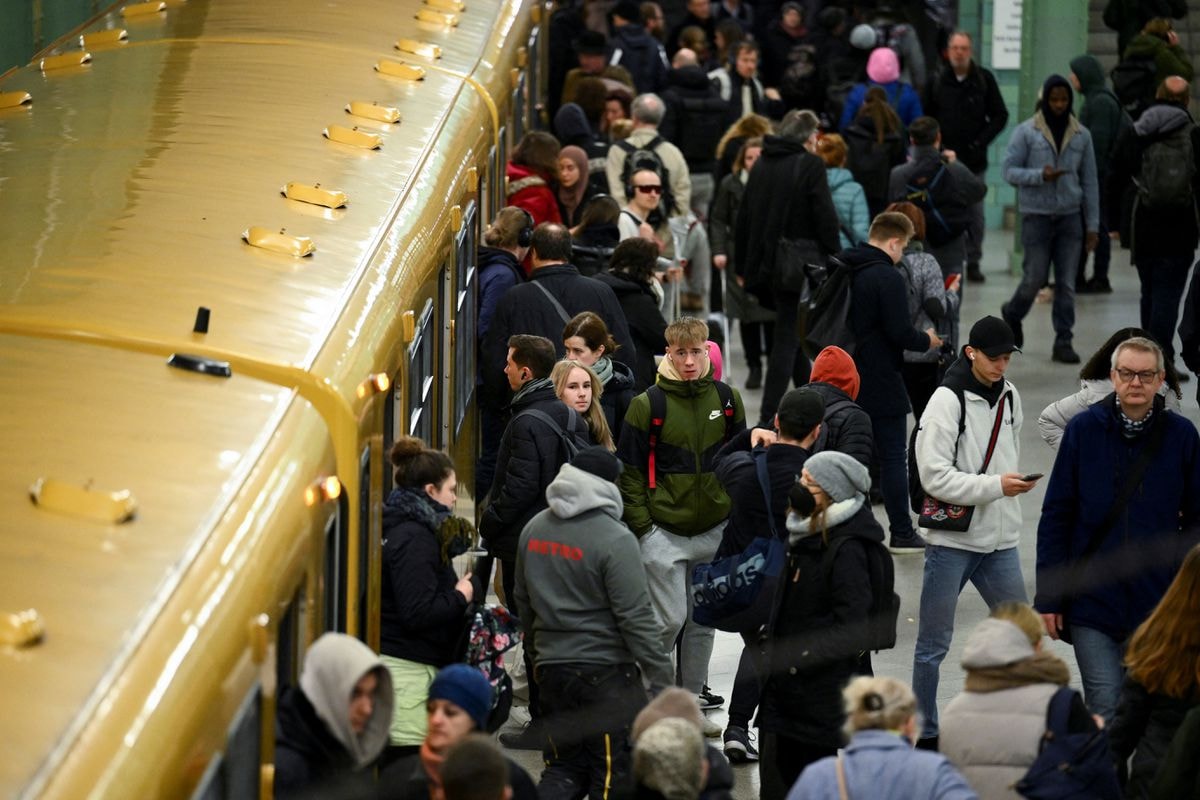Germany paralyzed by largest strike in decades
(Baonghean.vn) - Airports, bus stations, train stations... across Germany were paralyzed on the morning of March 27, causing disruption for millions of people at the beginning of the work week. This is the result of one of the largest strikes in decades, while Europe's leading economy is struggling with inflation.
 |
An electronic board announcing "no trains due to strike" at a railway station in Germany. Photo: Reuters |
The 24-hour strikes, organised by the EVG Rail and Transport Union, are the latest in months of industry taking a heavy toll on European economies, as soaring food and energy prices have dented living standards.
Germany's two largest airports, Munich and Frankfurt, have suspended flights, while rail operator Deutsche Bahn has also cancelled long-distance train services. Striking workers wearing red fluorescent vests blew whistles and hooted throughout a deserted Munich train station.
Workers are pressing for wage increases to cushion the impact of inflation, which hit 9.3% in February. Germany, which relied heavily on Russian gas before the conflict in Ukraine, has been hit particularly hard by rising prices, amid a scramble for new energy sources, with inflation exceeding the eurozone average in recent months.
Persistent price pressures have forced central banks to continue raising interest rates, although policymakers say it is too early to talk about a price-wage spiral.
The Verdi union is negotiating on behalf of about 2.5 million public sector workers, including in public transport and at airports, while the EVG union is negotiating on behalf of about 230,000 workers at rail operator Deutsche Bahn and bus companies.
 |
A deserted train station in Berlin on March 27. Photo: Reuters |
Hours before the strikes, both sides appeared determined, with union leaders warning that significant pay rises were “a matter of life and death” for thousands of workers. “Millions of passengers who rely on buses and trains are being affected by this excessive and exaggerated strike,” a Deutsche Bahn spokesman said on March 27.
Verdi is asking for a 10.5% pay rise, which would mean a salary increase of at least 500 euros per month, while EVG is asking for a 12% increase, or at least 650 euros per month.
Stranded passengers expressed both sympathy and unhappiness about the strike. Passenger Lars Boehm said: “Yes, it is understandable, but I have never gone on strike in my life, and I have been working for more than 40 years. But in France people always go on strike for something.”
EVG chairman Martin Burkert told the Augsburger Allgemeine newspaper on March 27 that employers had not yet come up with a viable proposal, and warned that further strikes were possible, including during the Easter holidays.
Deutsche Bahn said on March 26 that the strike was “completely excessive, baseless and unnecessary”, and employers are warning that pay rises for transport workers will lead to increased fees and taxes to make up the difference.
The strikes on March 27 were part of a wave of strikes in rich European countries in recent months, including France and Britain, where hundreds of thousands of workers in transport, health and education have been pressing for higher wages.
Protests against President Emmanuel Macron's pension reforms have also sparked the worst street violence in years in France.
 |
People using public transport to go to work are affected by a large-scale strike in Germany. Photo: Reuters |
So far, the economic impact from the March 27 strike has been limited, but this could change if the strike persists for a longer period, said Joerg Kraemer, chief economist at Commerzbank.
“The strike will be nerve-wracking for everyone,” he said. “But economically, the damage will likely be limited to the transport sector because factories will continue to operate and many workers will work from home.”
Bundesbank head Joachim Nagel also said last week that Germany needed to avoid a price-wage spiral: “It must be made clear that preventing inflation from becoming persistent through the labor market requires workers to accept reasonable wage increases and companies to accept reasonable profits. Although there are signs of a second-round effect of inflation, we have not yet observed the emergence of a price-wage spiral in Germany.”
